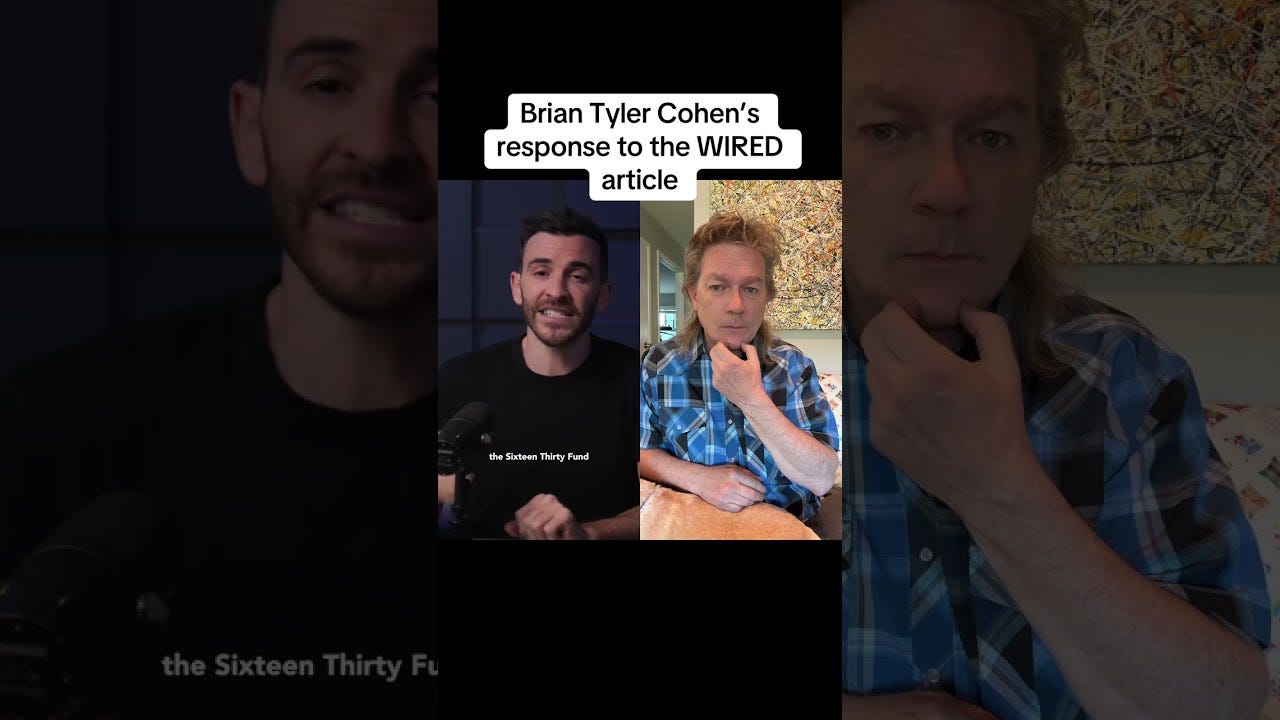Don’t Blame the Chorus Creators, Blame the Regulators
This is the exact type of problem a functioning government in a healthy democracy would solve.
Taylor Lorenz’s recent reporting in Wired describes how the Sixteen Thirty Fund, one of the most prominent liberal dark money groups, funded liberal media collective Chorus’s creator incubator project. The program recruited more than 90 influencers to spread Democratic-leaning messages, paying some up to $8,000 per month. Influencers were expected to attend training sessions, learn and apply tips for content improvement, and get briefed on news of the week.
According to contracts reviewed by Wired, the influencers were barred from disclosing their involvement and left vulnerable to content removal if they strayed from approved messaging. Several program participants and coordinators have disputed these allegations. Still, the story has triggered a wave of outrage. Critics have accused these creators of being covert political operatives, selling out their audiences, and distorting democratic discourse.
The instinct to place blame on creators is misplaced. They did not design this system. They did not carve out loopholes in campaign finance law or write vague disclosure rules. The real culprits are regulators and lawmakers who, despite years of warnings, have failed to adapt the law to the digital age.
The Federal Election Commission has never made clear whether influencer content funded by political groups must carry the same disclaimers as television spots or direct mail. The Federal Trade Commission has endorsement guidelines for commercial advertising, but those rules do not directly apply to political content. Congress has repeatedly stalled on legislation like the DISCLOSE Act, which would require nonprofits such as the Sixteen Thirty Fund to reveal more about their donors and spending. The absence of clarity has allowed dark money to flow unchecked into online campaigns, creating conditions where influencers can be recruited without disclosure.
To turn the outrage on creators is not only unfair, it is counterproductive. Many influencers are young and operate without legal teams or compliance officers. They are independent voices, many from diverse and local communities that traditional campaigns often ignore. These are precisely the voices we should want engaging politically. Expecting them to navigate the complexities of campaign finance law on their own is unrealistic. Disputes over this specific arrangement aside, when a well-funded group with an established track record presents a contract as legitimate, most creators will understandably see it as an opportunity, not a trap.
Even if it should be somewhat obvious to most digital natives that paid posts should be labeled, it is entirely credible that disclosures over participation in an incubator aimed at supporting content creation efforts more broadly would not seem necessary to the average creator. (What should the disclosure be? Where should it be? How frequent? Should the organization be responsible for sharing this info?)
Blaming creators obscures the damage the regulatory vacuum does to the broader social media ecosystem. Online trust is already strained. Too often, unpopular posts are dismissed as “paid shilling.” When secretive payment arrangements are exposed, suspicion of all creators intensifies. That dynamic hurts even those who are uncompensated and engage to simply participate and share their opinions.
None of this is new. Traditional political advertising has long required disclosure. Television and radio ads end with “paid for by” disclaimers. Mailers list their sponsors in bold. The rationale is simple: voters deserve to know who is trying to persuade them. Yet somehow, when that same persuasion takes place through TikTok or Instagram, regulators look the other way. That double standard is a conscious choice by government agencies that have refused to extend the same protections into the digital sphere. To scapegoat the young people signing these contracts is the latest in a trend of blaming young Americans for the the ills of a system not designed by them.
If Lorenz’s reporting has shown anything, it is that this problem will not fix itself. The FEC should issue immediate guidance clarifying disclosure expectations in this space. Congress should revive reforms like the DISCLOSE Act to shine light on dark money groups funding these efforts. Platforms, too, should perhaps play a role by creating easy-to-use disclosure tools so creators can comply without needing a law degree. (These are not necessarily the definitive solutions, but some productive action should be taken.)
The creators “caught” in the Chorus program are not the villains in this story. They have become the visible faces of a much deeper structural failure. If the public wants transparency in political messaging, the pressure should be directed at the government agencies and members of Congress that allowed these loopholes to persist. Don’t blame the influencers who are navigating a confusing system. Blame the regulators who refuse to fix it.



Why do we always give people a pass when they do shitty things? As someone that has been researching how the 2024 election was stolen since Nov. 6, 2024 I've observed that none of these pro-democracy chorus group have been willing to address the growing evidence that the illegal, criminal regime coordinated a massive fraud. The Republican trifecta was engineered. The election results are a statistical impossibility. The silence of these creators while they get "mentored" by dark money is not benign.